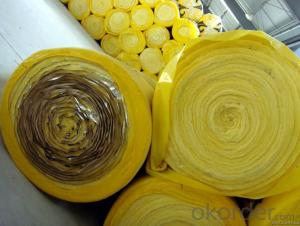Fiberglass sandwich panels are a marvel of modern engineering, a testament to the versatility and ingenuity of composite materials. These panels are not just a material choice; they are a solution that adapts to a myriad of applications, from aerospace to automotive, marine to construction, and even in the furniture industry. They are the Swiss Army knife of materials, ready to tackle any challenge with their unique blend of properties.
Imagine a material that is lightweight, yet incredibly strong. One that can withstand harsh weather conditions, resist corrosion, and maintain its structural integrity over time. This is the promise of fiberglass sandwich panels. But what exactly are these panels, and how do they achieve such a remarkable balance of properties?
The Structure of Fiberglass Sandwich Panels
At the heart of a fiberglass sandwich panel is a core material, typically made of lightweight foam, balsa wood, or honeycomb structures. This core is then encased between two outer layers of fiberglass, which are impregnated with resin and bonded together. The result is a panel that is much stronger and sturdier than its individual components might suggest.
Versatility in Action
The versatility of fiberglass sandwich panels is evident in the range of industries they serve. In the aerospace industry, they are used to create fuel-efficient, high-strength components. In the automotive sector, they contribute to the design of lighter, more fuel-efficient vehicles. In the marine industry, they are chosen for their resistance to water absorption and their ability to maintain buoyancy.
Design and Customization
One of the most appealing aspects of fiberglass sandwich panels is the degree of customization they offer. Manufacturers can tailor the panels to meet specific requirements, adjusting the thickness of the core and the layers of fiberglass to achieve desired levels of strength, rigidity, and weight. This flexibility allows for the creation of bespoke products that fit the unique needs of each project.
Durability and Maintenance
Fiberglass sandwich panels are designed to last. They are resistant to a wide range of environmental factors, including UV radiation, moisture, and extreme temperatures. This makes them an ideal choice for outdoor applications where durability is paramount. Moreover, their low maintenance nature means that they require minimal upkeep, reducing the total cost of ownership over time.
Sustainability and the Environment
In today’s eco-conscious world, the environmental impact of materials is a significant concern. Fiberglass sandwich panels score high in this regard. They are made from materials that are recyclable and have a lower carbon footprint compared to traditional materials. This makes them an attractive option for projects that aim to reduce their environmental impact.
Applications in Everyday Life
You might not realize it, but fiberglass sandwich panels are likely a part of your everyday life. From the bus you take to work, to the boat you enjoy on weekends, to the building where you live or work, these panels are hard at work, providing strength and durability without compromising on aesthetics.
The Future of Fiberglass Sandwich Panels
As technology advances, so too does the potential for fiberglass sandwich panels. Researchers are exploring new methods of manufacturing and new materials to enhance their properties even further. The future looks bright for these panels, with new applications and innovations on the horizon.
In conclusion, fiberglass sandwich panels are more than just a material; they are a testament to human innovation and the endless possibilities of composite materials. Their versatility, strength, and adaptability make them an invaluable asset in a wide range of industries. As we continue to push the boundaries of what is possible, these panels will undoubtedly play a crucial role in shaping the future of design and engineering.

